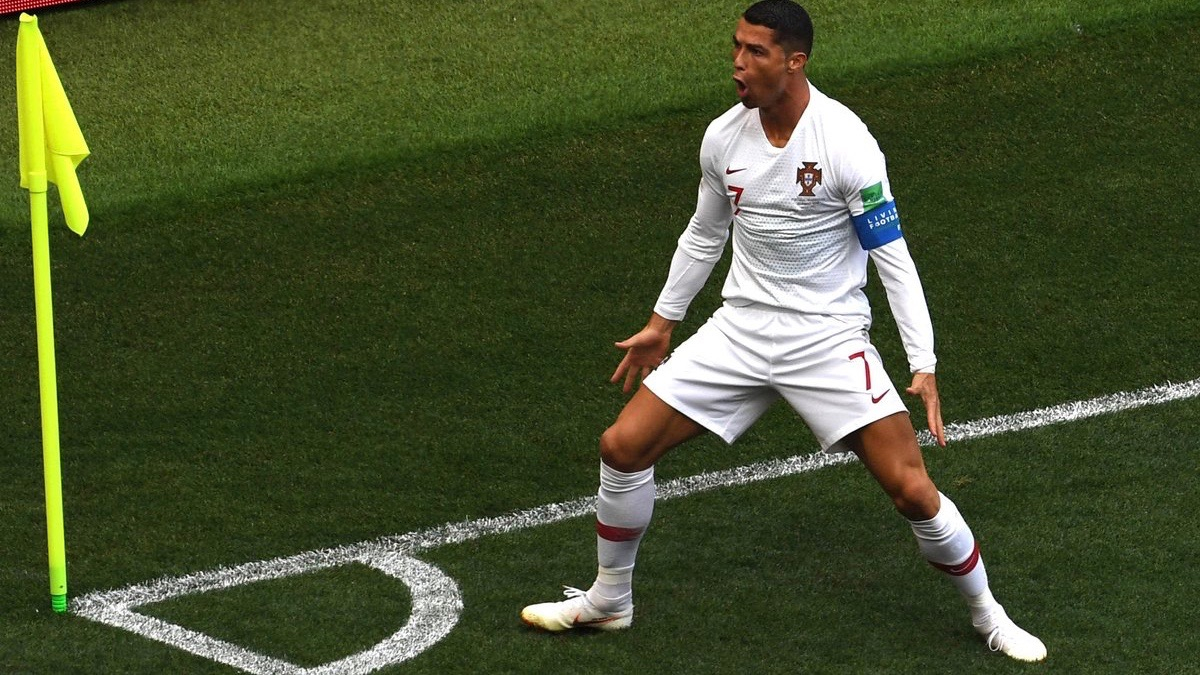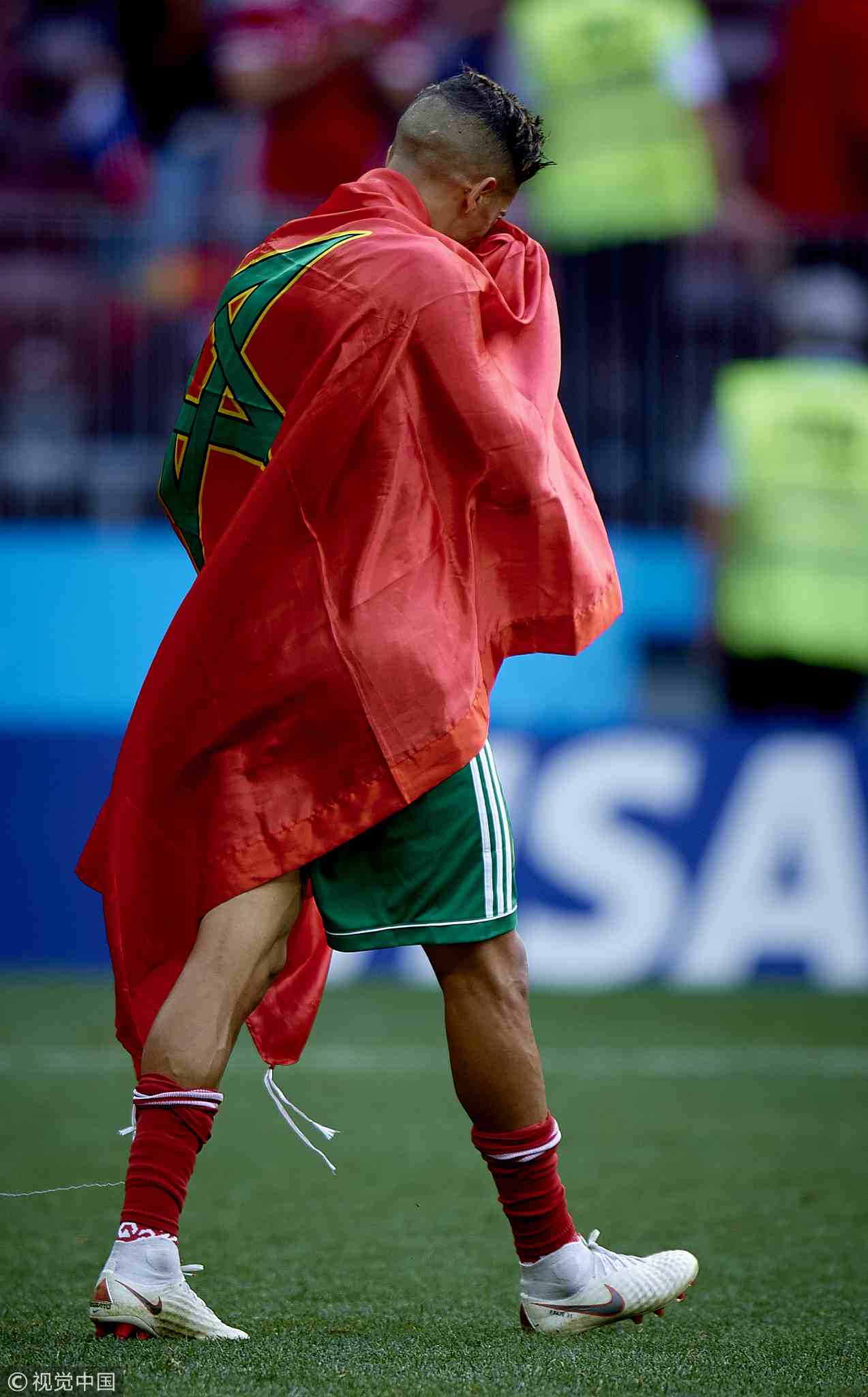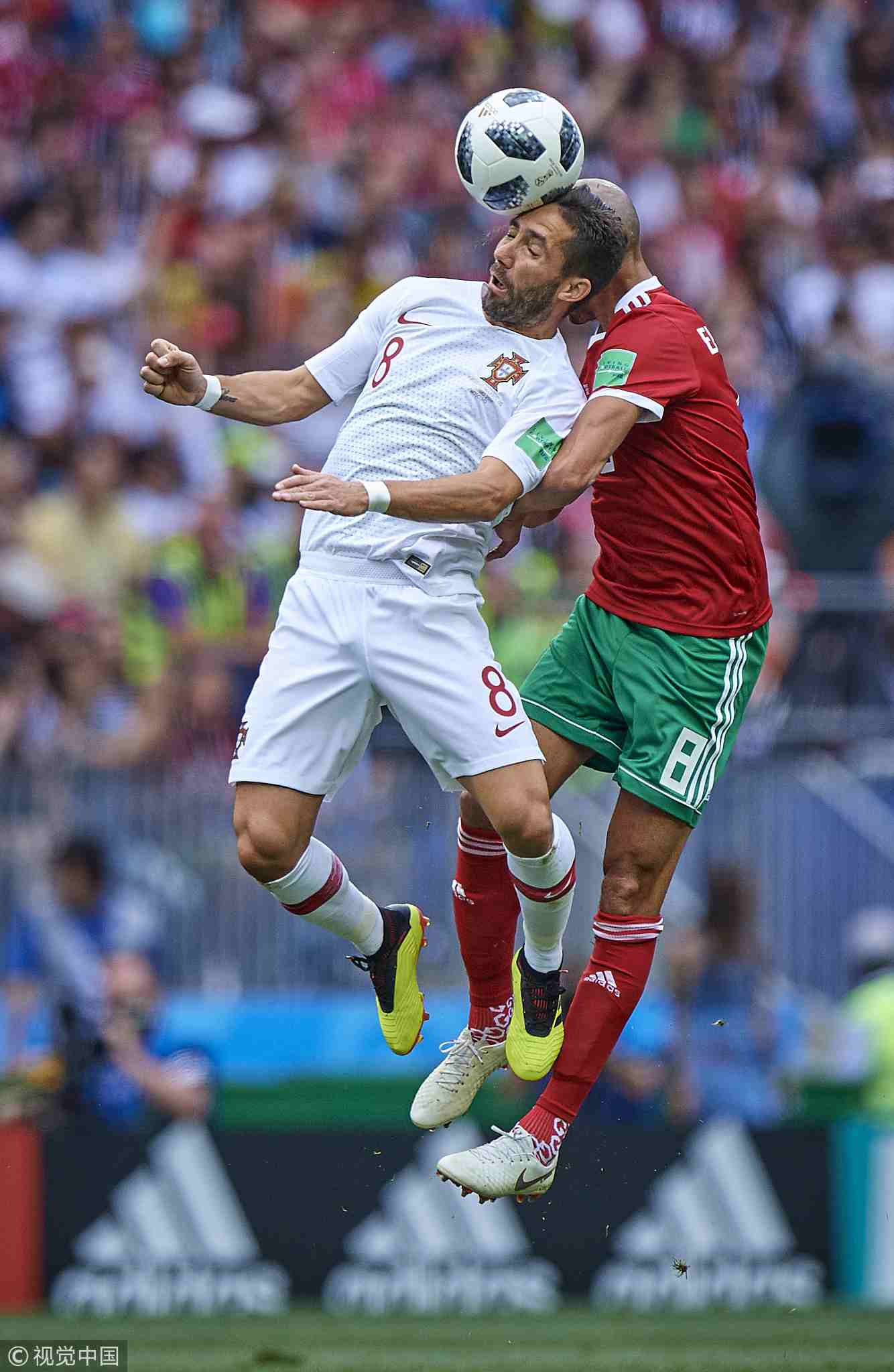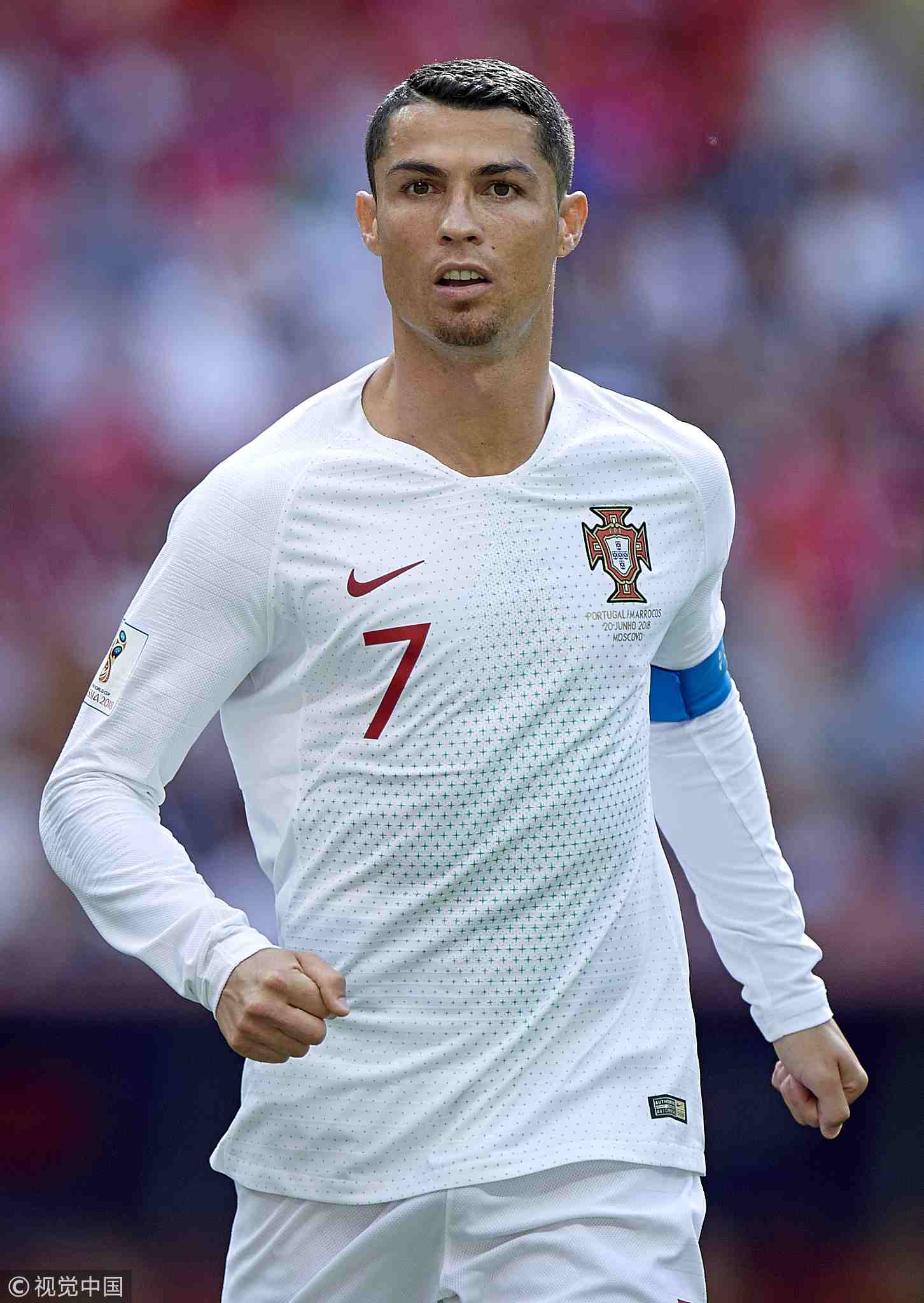
Sports
10:37, 21-Jun-2018
World Cup 2018: Portugal goes from world class to no class
Josh McNally

Group B, with its mix of Portugal, Spain, Iran and Morocco, was never going to be considered a Group of Death – this year’s World Cup, in fact, seems entirely absent of the concept. But after the unbelievably good Portugal vs. Spain game on the first full day of games, the group has taken on the characteristics of a metagame in which Portugal and Spain, once playing each other and coming away without a clear victory, were expected to play each other again via the familiars of Iran and Morocco.
At the first whistle, it seemed that way. Morocco had the kick off, but Portugal immediately took control and in the fourth minute, who else but Cristiano Ronaldo found himself where else but at the end of a corner and smashed the ball into the back of the net with a header that was the total opposite to Harry Kane’s 91st minute nudge against Tunisia. Ronaldo turned the ball into a missile and his charged up celebration suggested the Moroccans were in for a long night. And they were, just not in the way anyone expected.
While wins are, of course, paramount, at this point in the tournament the goal difference becomes very important too. The round-robin format means that the top two teams that progress to the round of 16 often do so with the same points, meaning that the only way to meaningfully separate them in the seeding is by who scored the most.
This is where the metagame aspect was supposed to kick in: Portugal were to knock in as many as they could against Morocco and then later in the day, after Uruguay faced the titans of Saudi Arabia, Spain were expected to try and beat it in their game against Iran, almost like a time displaced, team-based game of darts.

Faycal Fajr of Morocco reacts after the end of the 2018 FIFA World Cup Russia Group B match between Portugal and Morocco at Luzhniki Stadium, June 20, 2018. /VCG Photo
Faycal Fajr of Morocco reacts after the end of the 2018 FIFA World Cup Russia Group B match between Portugal and Morocco at Luzhniki Stadium, June 20, 2018. /VCG Photo
Instead, Portugal forgot the rules; not of this projected one-upmanship against their Iberian rivals but of the game itself. Suddenly, it was 2006 again and Portugal had won via the Golden Goal – now all they had to do was wait out the remaining 86 minutes. The tempo didn’t exactly drop off, but for the rest of the first half, Portugal played the game like it was the final pre-tournament friendly. They practiced their passing triangles for a while, Carvalho and Moutinho worked on their momentum play up the middle and Ronaldo basically did whatever he wanted.
Morocco didn’t get the memo. In the gray area between playing anti-football against your clear-cut betters, like the Australians did against the French, and actually trying to give them a game, like Iceland did to Argentina, is the tactic of trying to grind through your opposition. Unexpectedly after their clean game against Iran, Herve Renard’s men also seemed to forget the rules of the game, only instead of going back to the early '00s, they went into the not-too-distant-future of Norman Jewison’s Rollerball and turned football into a full contact game.
Almost every play featured a tackle of some kind. Ronaldo got a free kick in the 25th minute from Medhi Benatia raking his calf and standing on his ankle – and another five minutes later, and 10 after that Benatia finally got a yellow. Towards the end of the half, Raphael Guerreiro lifted his shirt to show the referee the scrapes all along his body, but nothing was done.

Joao Moutinho (L) of Portugal competes for the ball with Karim El Ahmadi of Morocco during the 2018 FIFA World Cup Russia Group B match between Portugal and Morocco at Luzhniki Stadium, June 20, 2018. /VCG Photo
Joao Moutinho (L) of Portugal competes for the ball with Karim El Ahmadi of Morocco during the 2018 FIFA World Cup Russia Group B match between Portugal and Morocco at Luzhniki Stadium, June 20, 2018. /VCG Photo
In the second half, Morocco upped their game. Instead of simply trying to bend Portugal, they now tried to break them. No longer content with foot stomps and shirt pulls, Morocco tried something brand new and actually tried to score goals. Their front three attacking midfielders – Ziyech, Belhanda and Amrabat – started to take the game into their own hands and began to look like a legitimate threat to Portugal, who turned the tables and began fouling at will. 2-0 is considered to be the most dangerous lead in football, but Portugal were defending their 1-0 as if Morocco’s goals were only worth half.
Rui Patricio, Portugal’s goalkeeper, ended up as the only player keeping his team and country in the tournament several times, mainly because he was the only player taking Morocco seriously. If they were more clinical in the box, Portugal would have ended the game three or four down. Instead, Belhanda, now designated as the danger man, either scuffed, mis-hit or didn’t get the power needed on his shots to get them where they needed to go, and Patricio managed to clear them all. Around the hour mark, he made a spectacular dive to send a header over the bar, and in that one move, put in more effort than the rest of his team.

Cristiano Ronaldo of Portugal looks on during the 2018 FIFA World Cup Russia Group B match between Portugal and Morocco at Luzhniki Stadium, June 20, 2018. /VCG Photo
Cristiano Ronaldo of Portugal looks on during the 2018 FIFA World Cup Russia Group B match between Portugal and Morocco at Luzhniki Stadium, June 20, 2018. /VCG Photo
It ended with 38 fouls and one goal, and Portugal were extremely lucky to come away with the win – and Morocco unfortunate to be eliminated without scoring a goal – but the question must be asked: Why?
There are two reasonable answers. The first is that, knowing Morocco were of a lower standard than Spain, they played to a lower standard, content to brawl and save their energy for whoever they will face in the round of 16, only to find themselves nearly caught out.
The second, more troubling answer, is that after expending all the energy needed to take on Spain, they had nothing left to give. That would explain the strong start and the lethargy that came instantly afterwards.
Either way, with progress now confirmed, all we – and they – have to do, is wait and see what their cross-border rivals come up with.

SITEMAP
Copyright © 2018 CGTN. Beijing ICP prepared NO.16065310-3
Copyright © 2018 CGTN. Beijing ICP prepared NO.16065310-3